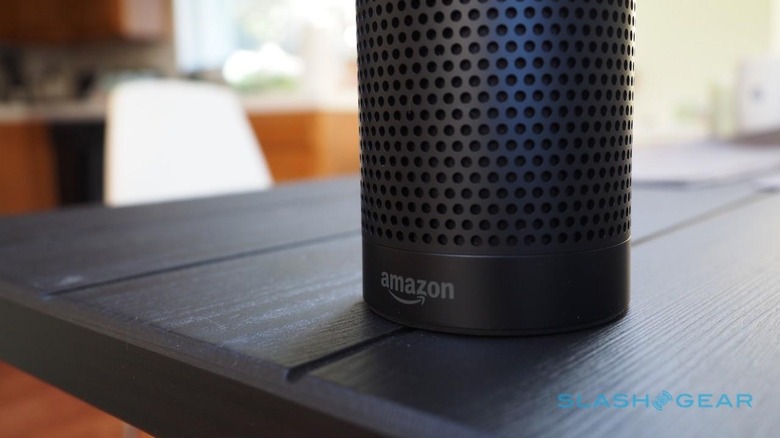Smart home turns informant: Police want Echo and IoT data in murder case
Your smart home could turn into a police informant, if investigators in Arkansas can set a precedent that data from connected devices like Amazon's Echo be seized as murder case evidence. The police force in Bentonville served Amazon with a warrant for recordings made by an Echo smart speaker, after it potentially heard details around a murder that took place in the home. However, Alexa wasn't the only inadvertent potential witness to the alleged crime.
The case centers around James Andrew Bates, who is accused of the strangulation and drowning death of Victor Collins on November 22. Police found Collins in a hot tub, after Bates called emergency services to report finding the body. He later pleaded not guilty to murder charges, and will face trial in 2017.
As part of the evidence gathering process, investigators looked to Bates' smart home technology. One example is the Amazon Echo, which uses always-on microphones that listen out to trigger words – either "Alexa" or "Amazon" – before doing cloud-processing on whatever the spoken request is. Amazon was served with a warrant to hand over any recordings those microphones might have made.

According to The Information, Amazon declined to give full details of what was stored on its servers. It did, though, grant access to Bates' Amazon account details, in addition to a list of purchases he had made. The police say they were able to extract some data from the Echo speaker itself, though it's uncertain at this point what that might comprise.
MORE INFO: How private is Amazon's Echo?
The privacy issues around Echo – and other smart home speakers, such as Google Home – have been a topic of controversy for some time. While the processing of the trigger words is done locally, on the speaker itself, any subsequent audio is streamed to the cloud where Amazon's analysis takes place. However, that audio also includes a small amount of cached content kept from before you actually said the wake word.
"When you use the wake word, the audio stream includes a fraction of a second of audio before the wake word, and closes once your question or request has been processed," Amazon explains. The company also stored those audio streams: users can review them in the companion Alexa app on their smartphone, rating how accurately Amazon recognized what was actually said. There, they can be deleted too, though they're not removed by default.
Exactly what might have been stored on the Echo in question, therefore, and what Amazon might still have on its servers is a matter of speculation. On the one hand, if the wake word hadn't been heard – or mis-heard, as can sometimes be the case with Echo – then the smart speaker would have had no cause to transfer any recordings to the cloud. At the same time, it's uncertain how much cached speech data was kept in the 4GB of local storage found inside.
Alexa isn't the only unexpected witness in the case, mind. Investigators are also looking at data from a connected water meter, they confirmed, which logged 140 gallons-worth of usage between 1am and 3am on the night of the incident. According to the police's version of that night, the Bates used that water to wash away evidence of the crime.
Expectations of privacy when we invite devices that can record us at any time into our homes are still legally untested. The FBI, earlier in 2016, declined to confirm whether or not it had wire-tapped an Echo in an investigation, for instance; the agency has also pressured Apple to unlock iPhones owned by subjects in its inquiries. "You have an expectation of privacy in your home," Bates' defense attorney Kimberly Weber said in a statement on the case, "and I have a big problem that law enforcement can use the technology that advances our quality of life against us."
VIA Engadget; The Information
